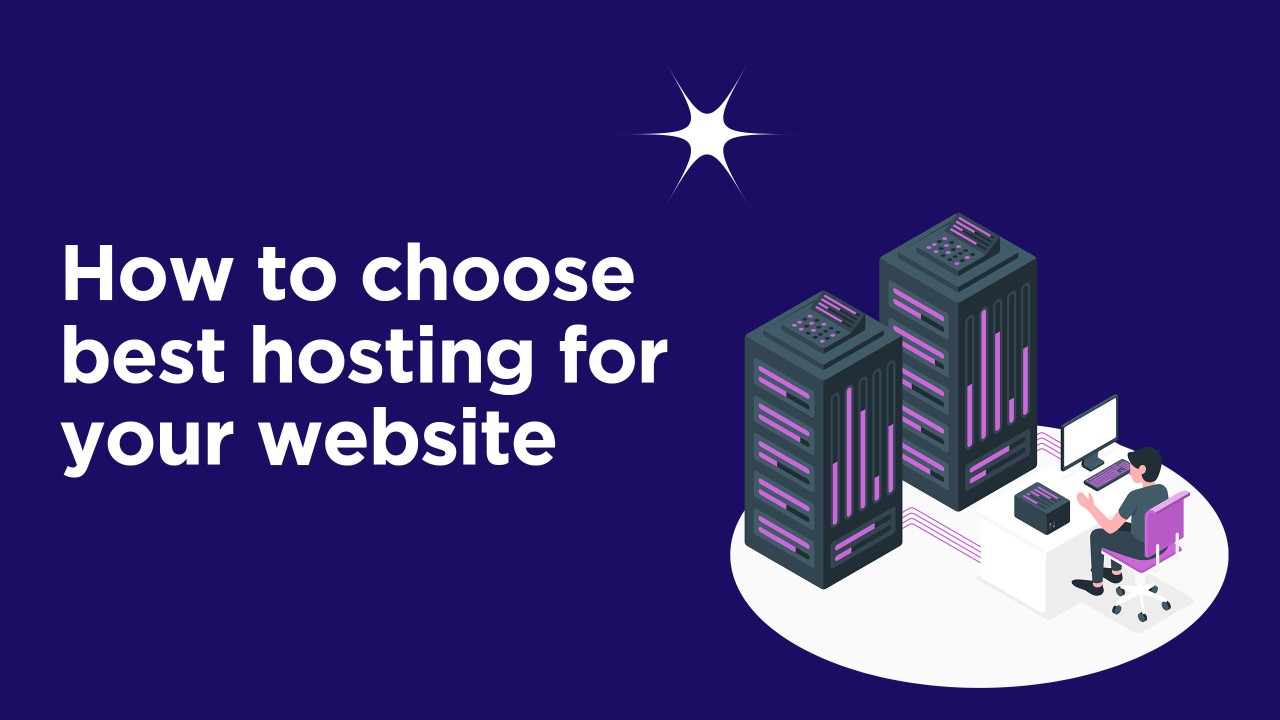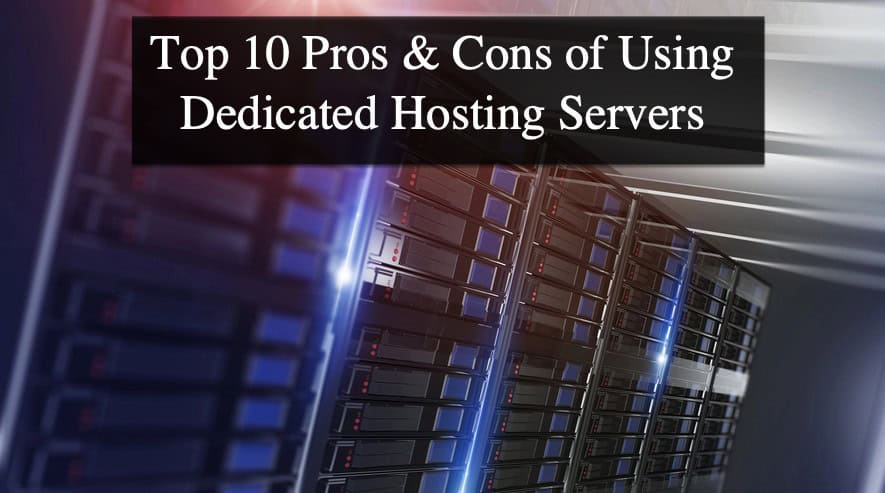
Choosing the Right Hosting for Your Business Website
Advertisment
Choosing the Right Hosting for Your Business Website
Introduction
In today’s digital age, a business’s online presence is often the first impression it makes on potential customers. A critical component of this presence is your website, which requires a reliable hosting service to ensure it runs smoothly, loads quickly, and remains secure. Choosing the right hosting for your business website can significantly impact its performance and your customer experience. This article will explore the various hosting options available, with a particular focus on cloud computing, different types of servers, and how to select the best hosting solution for your business needs.
1. Understanding Website Hosting
Website hosting is the service that allows individuals and businesses to make their websites accessible on the internet. It involves storing website data on a server, which then serves these files to visitors when they access your site. Understanding the different types of hosting is essential to making an informed decision.
Types of Hosting:
- Shared Hosting: Multiple websites share the same server resources, making it a cost-effective option for small businesses with low traffic.
- VPS Hosting (Virtual Private Server): Offers a dedicated portion of a server’s resources, providing better performance and control than shared hosting.
- Dedicated Hosting: A business has an entire server to itself, offering maximum control, performance, and security but at a higher cost.
- Cloud Hosting: Utilizes multiple servers in a network, allowing for scalability and reliability. It’s a popular choice for businesses that experience varying levels of traffic.
Each of these hosting types involves the use of servers that vary in capacity and functionality, which directly influences your website’s speed and uptime.
2. Factors to Consider When Choosing Hosting for Your Business Website
Choosing the right hosting solution requires a careful analysis of your business needs. Here are some factors to keep in mind:
Website Traffic Needs
Understanding your website’s traffic levels helps determine the type of hosting you need. If your site expects high traffic or sudden spikes, consider cloud hosting or a VPS that can handle the load.
Scalability
As your business grows, so will your website traffic. It’s essential to choose a hosting provider that offers scalability, allowing you to upgrade resources without downtime.
Security
Security is a top priority, especially for e-commerce and websites handling sensitive data. Look for hosting services that provide robust security features, including firewalls, SSL certificates, and regular backups.
Performance
Server speed and reliability are crucial for user experience and SEO. Websites that load faster tend to rank higher on search engines, making performance a key consideration.
3. Cloud Computing in Website Hosting
Cloud computing has revolutionized the way businesses approach website hosting. It allows websites to utilize a network of servers, providing flexibility, scalability, and enhanced performance.
Benefits of Cloud Computing for Hosting
- Scalability: Easily scale your server resources up or down based on traffic demands.
- Reliability: With data stored across multiple servers, cloud hosting ensures higher uptime and reduces the risk of server failure.
- Cost-Efficiency: Pay only for the resources you use, making cloud hosting an affordable option for businesses of all sizes.
Cloud hosting leverages cloud computing technology to deliver a seamless and efficient hosting experience, making it an ideal solution for businesses looking to future-proof their websites.
4. Comparing Hosting Options: Shared, VPS, Dedicated, and Cloud Hosting
Shared Hosting
- Pros: Affordable, easy to set up, suitable for beginners.
- Cons: Limited resources, lower performance, not ideal for high-traffic websites.
VPS Hosting
- Pros: Better performance, more control, scalable.
- Cons: More expensive than shared hosting, requires some technical knowledge.
Dedicated Hosting
- Pros: Complete control, high performance, enhanced security.
- Cons: High cost, requires technical expertise.
Cloud Hosting
- Pros: Scalable, reliable, cost-effective.
- Cons: Pricing can be complex, dependent on internet connectivity.
Each hosting type has its own set of advantages and is suitable for different business sizes and needs. For growing businesses, cloud hosting often provides the best balance between cost, performance, and scalability.
Advertisment
5. The Role of Servers in Business Website Hosting
Servers play a crucial role in hosting, as they are responsible for storing and managing the data that makes up your website.
Types of Servers:
- Web Servers: Deliver web pages to users’ browsers.
- Database Servers: Store and manage databases, crucial for dynamic websites.
- File Servers: Manage files and data used by the website.
Choosing the right server setup ensures optimal performance, especially for websites with high data requirements or complex functionalities.
6. How to Evaluate the Best Hosting Provider for Your Business
Selecting the right hosting provider is a key decision for your website’s performance and security. Consider the following factors when choosing a provider:
Key Factors:
- Customer Support: 24/7 support is essential for resolving any issues quickly.
- Pricing: Choose a provider that offers transparent pricing without hidden fees.
- Reliability: Check uptime guarantees and server reliability to avoid downtime.
Some popular hosting providers include Bluehost, SiteGround, and Amazon Web Services, each offering a range of hosting options tailored to different needs.
7. Benefits of Cloud Hosting for Business Websites
Cloud hosting has become the go-to solution for many businesses due to its flexibility and efficiency. It allows companies to adapt quickly to changing demands and offers a cost-effective way to manage resources.
Advantages of Cloud Hosting:
- Improved Data Management: Centralized data storage makes data retrieval fast and efficient.
- High Availability: Ensures that your website remains online even if one server fails.
- Flexible Pricing: Pay only for what you use, which is ideal for businesses with fluctuating traffic.
The benefits of cloud computing in hosting extend beyond just performance, providing a strategic advantage for businesses looking to scale.
8. Hosting for E-commerce Websites
E-commerce websites have unique needs compared to other types of sites, making the choice of hosting crucial.
Considerations for E-commerce:
- Speed: Fast loading times are critical to reduce bounce rates.
- Security: SSL certificates and secure payment gateways are a must.
- Scalability: Cloud hosting is ideal for e-commerce due to its ability to handle high traffic volumes.
A reliable hosting solution ensures that e-commerce websites can provide a seamless shopping experience, boosting customer satisfaction and sales.
9. SEO Considerations in Choosing Hosting for Your Business Website
Hosting has a direct impact on your website’s SEO performance. Search engines consider factors like site speed and uptime when ranking websites.
Key SEO Factors:
- Server Speed: Faster servers improve website load times, which is crucial for SEO.
- Uptime: High uptime rates mean your site is always accessible to search engines.
- Data Security: Secure hosting protects against data breaches that could harm your site’s ranking.
Investing in quality hosting solutions, especially those based on cloud computing, can significantly improve your website’s SEO performance and user experience.
10. Future Trends in Hosting and Cloud Computing for Business Websites
The future of hosting and cloud computing looks promising, with new technologies and trends emerging rapidly.
Trends to Watch:
- Hybrid Cloud Solutions: Combining private and public clouds for better flexibility.
- Edge Computing: Bringing data closer to users to reduce latency.
- AI and Automation: Automating server management tasks for better efficiency.
Keeping up with these trends ensures that your business website remains competitive and prepared for technological advancements.
Conclusion
Choosing the right hosting for your business website is a strategic decision that can affect your online presence, SEO rankings, and customer satisfaction. By understanding the various hosting options available, the role of servers, and the benefits of cloud computing, businesses can make informed decisions that align with their needs. Investing in scalable, secure, and high-performance hosting solutions will help your business website grow and succeed in the digital landscape.
Make sure to choose a hosting solution that not only meets your current needs but also supports your future growth. For businesses ready to scale and enhance their online presence, cloud hosting offers an excellent balance of performance, cost, and flexibility.
Advertisment












Post Comment